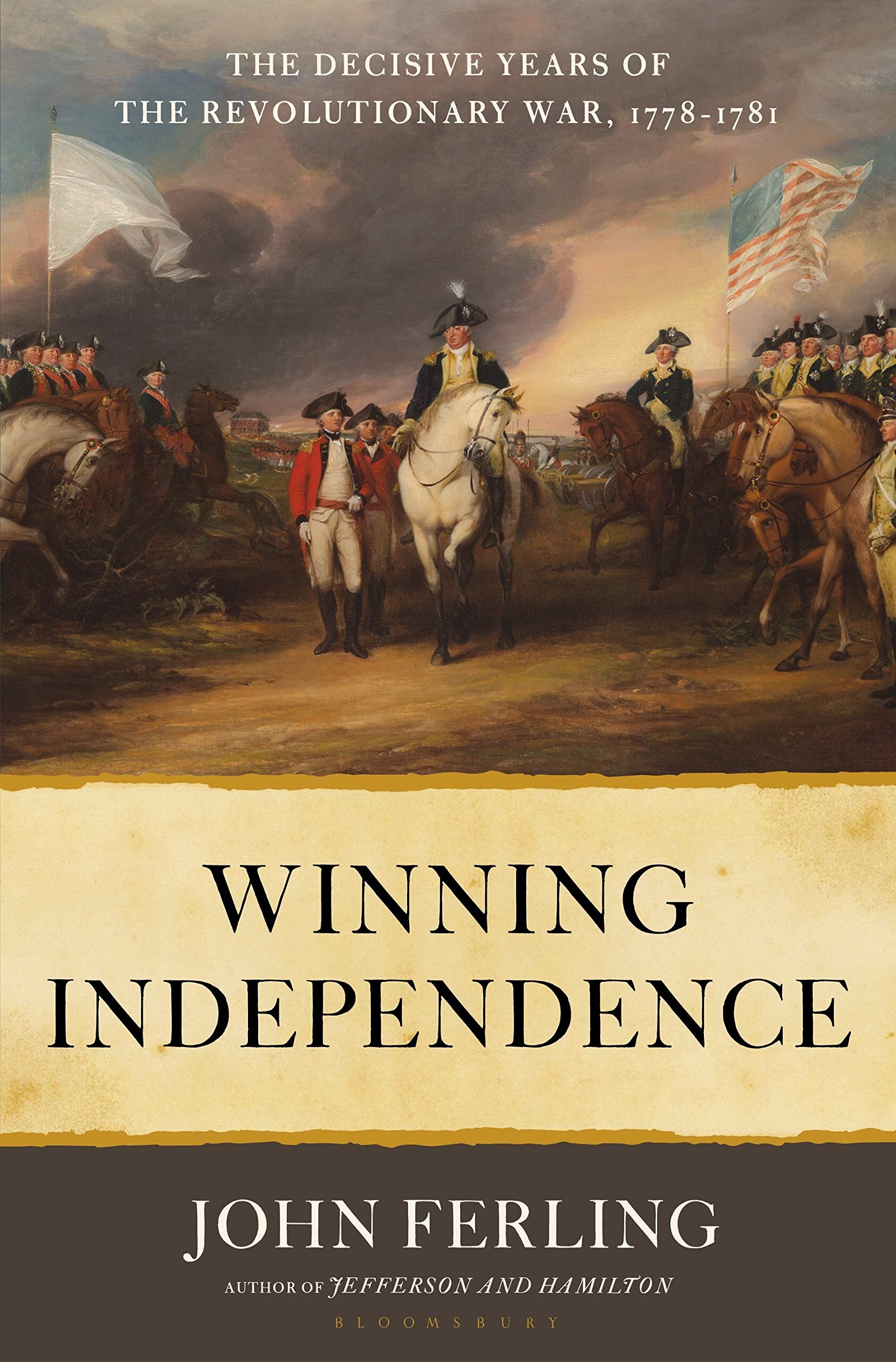Winning Independence by John Ferling
/Winning Independence: The Decisive Years of the Revolutionary War, 1778-1781
By John Ferling
Bloomsbury, 2021
The way the American Revolution is typically taught in schools - as a rag-tag rebellion on the edge of annihilation until the fateful year 1778 brought the French into the war on the side of the rebels, after which the defeat of General Cornwallis at Yorktown and the winning of independence was all but a foregone conclusion - does pitiful justice to the actual nature of the on-the-ground realities of the time. So says the living dean of American historians of the period, John Ferling, in his big and immensely satisfying new book Winning Independence. Ferling points out that colonial military leaders who’d been overjoyed at the entrance of France into the war in the wake of scrappy military victories like the one at Saratoga in 1777 were singing a very different tune by 1781, when the promise of France’s continued help seemed to be flickering, and when the British under Sir Henry Clinton seemed intent on separating the South from the rest of the rebellion and keeping the fighting going until the north was crushed.
Throughout Winning Independence, there flickers an alternate American Revolution that went a very different way, with Saratoga and even Yorktown itself looking more like temporary setbacks than event-shaping debacles. Ferling stresses this, and it makes this weighty, deeply-researched tome surprisingly thrilling reading. Time and again, the book makes the reader almost forget that they already know how the story is going to come out:
Deep into the summer of 1781 - more than six years into this grim, bloody conflict - the war’s outcome was far from known. American independence might yet be secured; its bid for independence might be foiled; or an independent United States consisting of fewer than thirteen states might come into being. Winning or losing this war hinged on decisions made, actions taken, and initiatives not pursued throughout that pivotal year.
John Ferling has been writing about the era of the American Revolution for forty years - his biographies of George Washington and John Adams are superb, as are his big books on the Revolutionary War, Almost a Miracle and A Leap into the Dark (to which this present volume acts as a conclusion) - and so it’s not surprising that he’s developed deep-seated judgements on many of the issues and personalities of the day.
Some of these judgements will provide grist for argument among history buffs, maybe particularly Ferling’s strident defense of Sir Henry Clinton, the commander of Britain’s army. Clinton has typically been viewed as a bloated ditherer who, when sent to a boiling fracture-point in the Empire, spent most of his time hosting dinner parties and bleating for reinforcements he knew perfectly well were not immediately available. Ferling insists that this is all wrong:
Much of the faultfinding directed at Clinton once he commanded Britain’s army was unfounded. For the most part, the notion that he shrank from bold, even daring, action is ludicrous. He responded with energy and zeal to multiple crises during his initial four months as commander, including going into battle with Washington at Monmouth, springing into action when threatened by d’Estaing in New York and Rhode Island, and rushing a force to Newport in the late summer of 1778 that came close to annihilating Sullivan’s American army. There was no sign of indecisiveness on Clinton’s part in any of these actions. He was the very embodiment of audacity in each response.
This vociferous defense is offered fairly late in the book, so readers will have hundreds of pages of details to help them decide if Ferling is right about Clinton (hint: he’s not). Again and again, that kind of headlong fascination characterizes the reading experience of Winning Independence. This is the story of a narrow, unlikely victory, just as it should be remembered.
Steve Donoghue is a founding editor of Open Letters Monthly. His book criticism has appeared in The Boston Globe, The Wall Street Journal, The Washington Post, and The American Conservative. He writes regularly for The National, The Vineyard Gazette, and The Christian Science Monitor. His website is http://www.stevedonoghue.com.
